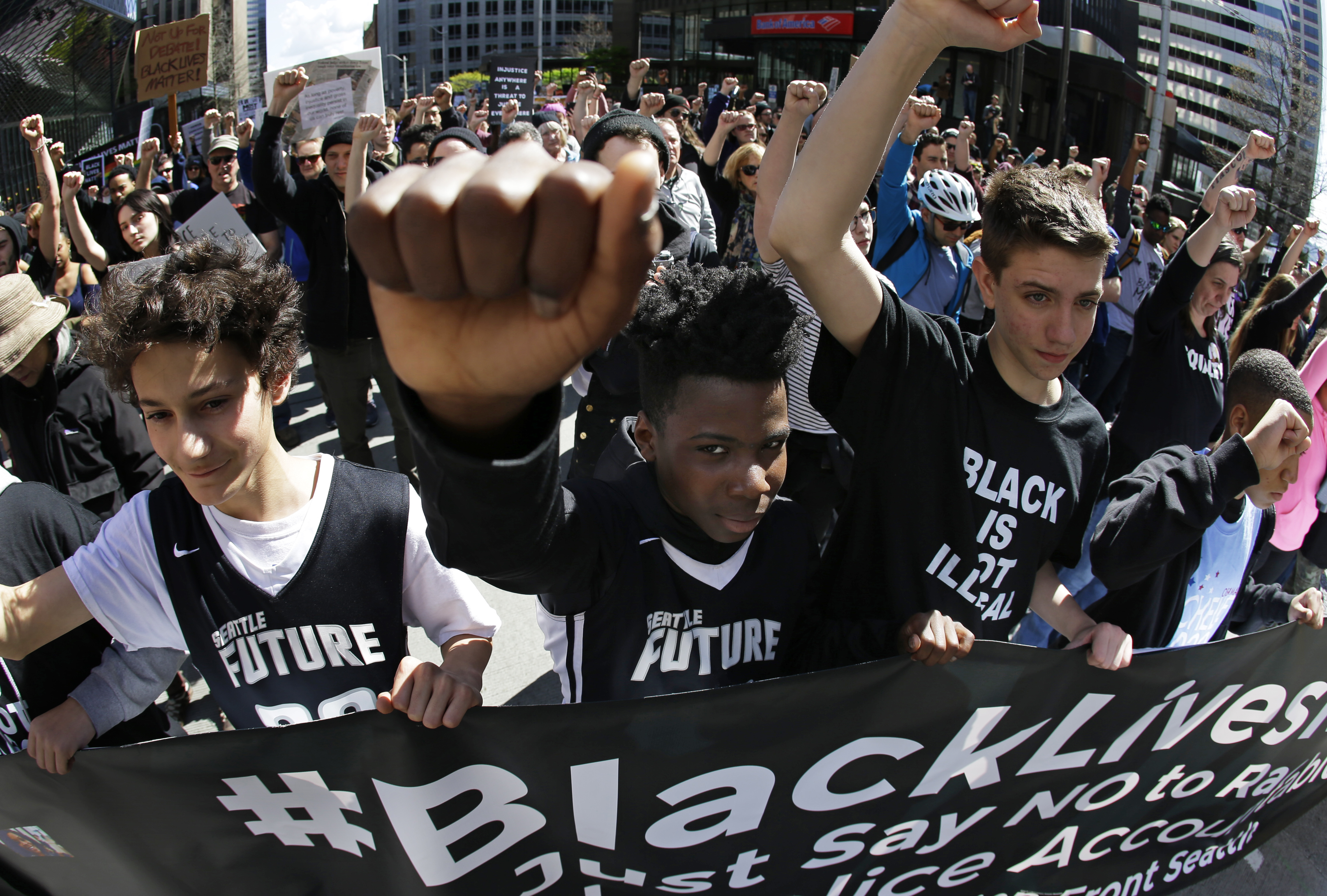Making progress on race doesn't mean we've solved racism
Things have changed, but to say they are better does not imply that they are now great


If any good can be wrung from the recent events in Charlottesville, Virginia, and President Trump's dismal response, perhaps they can serve as a much-needed reminder that the problem of racism might not be quite as solved as some Americans would like to believe. Yes, progress has been made. But there could not be clearer evidence that our government, institutions, and society have much more work to do.
Unfortunately, we do not always see it this way. We often consider ourselves a redeemed nation that has banished racism to the past. This mindset has consequences, and they are playing out in our city streets, as well as in our elections today.
Four years ago, in Shelby County v. Holder, the U.S. Supreme Court changed how the landmark Voting Rights Act of 1965 (VRA) could be enforced. States with histories of discrimination in the implementation of voting rights were required by the act to obtain preclearance from the Department of Justice for certain changes to state laws or voting practices. This was an attempt on the part of the federal government to prevent states from making discriminatory changes to their election procedures. In 1965, this was understood as a reasonable if not welcome reaction to the longstanding prevalence of Jim Crow practices in Southern states.
The Week
Escape your echo chamber. Get the facts behind the news, plus analysis from multiple perspectives.

Sign up for The Week's Free Newsletters
From our morning news briefing to a weekly Good News Newsletter, get the best of The Week delivered directly to your inbox.
From our morning news briefing to a weekly Good News Newsletter, get the best of The Week delivered directly to your inbox.
By 2013, the Supreme Court argued through Chief Justice John Roberts' decision that enough time had passed to warrant a reconsideration of the assumptions underlying the VRA. In two key passages, Roberts noted that treating some states differently "based on 40-year-old facts having no logical relationship to the present day" was no longer justifiable. "Our nation has changed," he concluded.
This presumption — that America and the South are not the same places today as they were in 1965 — is logical. It is also seriously flawed.
In a vacuum, Roberts' decision makes sense; an act passed to remedy problems specific to a time and place might be outdated after 50 years. And certainly American society has changed since 1965. However, recent events demonstrate the flaws in the assumption that racism is less of a problem today simply because its more obvious symbols, like "Colored Only" doors on public buildings, are gone, and African-Americans are not being barred from polling places en masse by the threat of violence from white mobs, as in the past.
Roberts' mistake is a common one among white Americans. Unsurprisingly, white and black Americans perceive the prevalence of racism very differently. This dynamic creates tension between a part of the population that feels like much has been accomplished, and another part that feels like many problems still remain. In reality, these views are not mutually exclusive. The accomplishments of the civil rights movement have been real and substantial, but they do not add up to a "solution" to a problem as complex and deeply rooted as racism. The fact that the Voting Rights Act produced improvements was taken by the court as a sign that it had done its job and was no longer necessary.
A free daily email with the biggest news stories of the day – and the best features from TheWeek.com
But rather than considering the problems targeted by the Voting Rights Act solved, it makes more sense to consider whether those problems are now manifesting themselves in other ways.
And indeed, problems with race and access to voting are numerous. Voter ID requirements — particularly when states close offices or reduce state services in black or Hispanic areas — have a demonstrated discriminatory impact. The aggressive purging of voter registration rolls culls disproportionately high numbers of black and Hispanic voters. Felon and ex-felon disenfranchisement suppresses African-American turnout considerably in many states. The reduction or elimination of alternative voting options like early voting and absentee ballots disproportionately burdens lower-income voters, and people of color are more likely to belong to that group. And the use of race as a factor in the process of redistricting is in some ways more of a mess today than in the '60s now that technology allows the carving out of legislative districts with remarkable precision.
For every kind of institutional racism that is obvious to the naked eye (e.g. black voters being physically barred from the polls or murdered for exercising their rights), there are several more that are less obvious. In the past week or so, we have seen some very explicit reminders that racism — even the kind of torch-waving, swastika-bearing racism that we have liked to think of as a thing of the past — is alive and well among some Americans. The fact that part of the problem is rhetoric coming directly from the White House underscores that this is hardly a phenomenon limited to the fringes of society.
As we move forward, we would do well to remember Charlottesville and our president's response when we consider important issues like criminal justice reform, ballot access and electoral integrity, income inequality, and education policy. In every case, we can find evidence of improvement and assume the problem is solved. Or, we can remember that racism isn't "over" but alive and not merely a problem among extreme outliers. Things have changed, but to say they are better does not imply that they are now great.
Ed Burmila is an Assistant Professor of Political Science at Bradley University. He lives in Chicago and blogs politics at Gin and Tacos.
-
 Has Zohran Mamdani shown the Democrats how to win again?
Has Zohran Mamdani shown the Democrats how to win again?Today’s Big Question New York City mayoral election touted as victory for left-wing populists but moderate centrist wins elsewhere present more complex path for Democratic Party
-
 Millions turn out for anti-Trump ‘No Kings’ rallies
Millions turn out for anti-Trump ‘No Kings’ ralliesSpeed Read An estimated 7 million people participated, 2 million more than at the first ‘No Kings’ protest in June
-
 Ghislaine Maxwell: angling for a Trump pardon
Ghislaine Maxwell: angling for a Trump pardonTalking Point Convicted sex trafficker's testimony could shed new light on president's links to Jeffrey Epstein
-
 The last words and final moments of 40 presidents
The last words and final moments of 40 presidentsThe Explainer Some are eloquent quotes worthy of the holders of the highest office in the nation, and others... aren't
-
 The JFK files: the truth at last?
The JFK files: the truth at last?In The Spotlight More than 64,000 previously classified documents relating the 1963 assassination of John F. Kennedy have been released by the Trump administration
-
 'Seriously, not literally': how should the world take Donald Trump?
'Seriously, not literally': how should the world take Donald Trump?Today's big question White House rhetoric and reality look likely to become increasingly blurred
-
 Will Trump's 'madman' strategy pay off?
Will Trump's 'madman' strategy pay off?Today's Big Question Incoming US president likes to seem unpredictable but, this time round, world leaders could be wise to his playbook
-
 Democrats vs. Republicans: who are US billionaires backing?
Democrats vs. Republicans: who are US billionaires backing?The Explainer Younger tech titans join 'boys' club throwing money and support' behind President Trump, while older plutocrats quietly rebuke new administration


